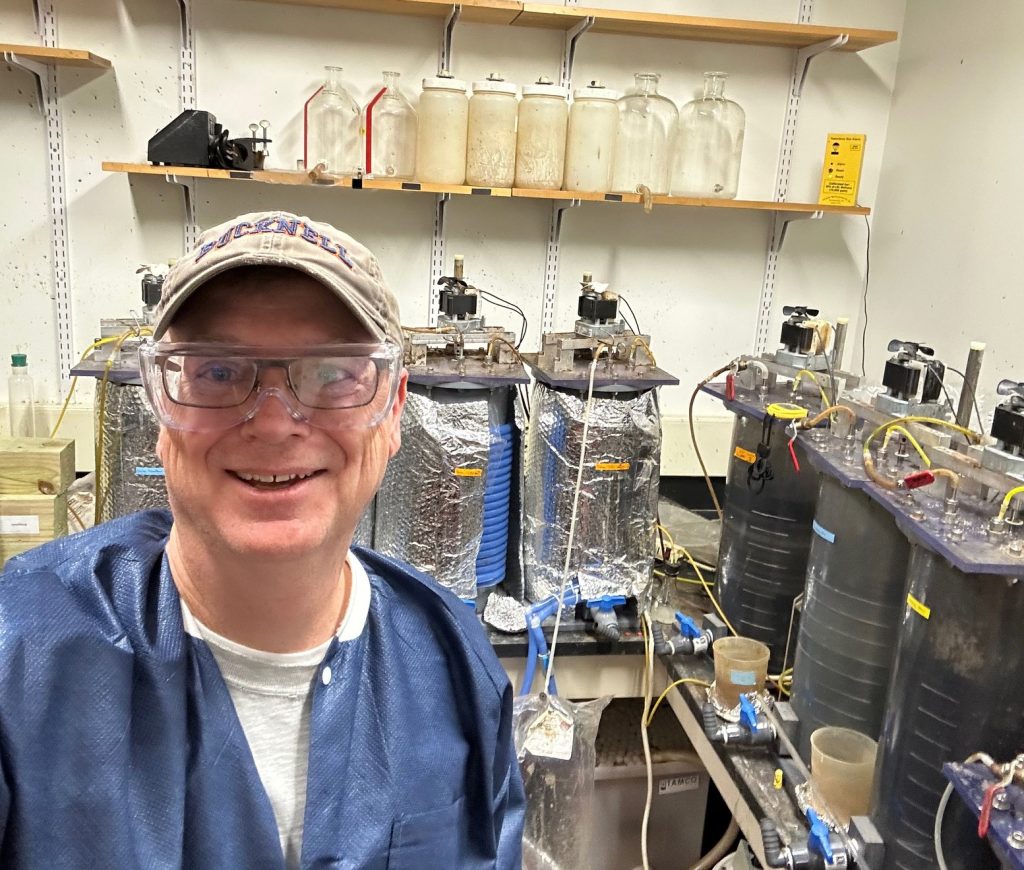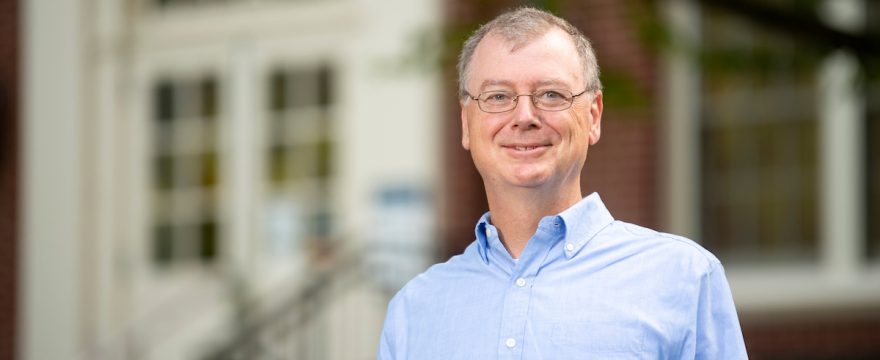Bucknell Professor of Civil & Environmental Engineering Matt Higgins was selected as a Fulbright U.S. Scholar for 2025-26 for Australia. Fulbright Scholar Awards are prestigious fellowships that offer scholars unique opportunities to teach and conduct research abroad and play a critical role in U.S. public diplomacy. Matt will spend the upcoming spring semester conducting research, working with collaborators and making connections at the University of Technology Sydney.
Matt recently shared some perspectives on his Fulbright award in a Q&A:
Q: How were you selected for the Fulbright Scholar Award?
A: Fulbright has an annual call for applications. I have a sabbatical coming up, so I applied with a proposal last September. I wasn’t sure I was a good candidate, but I thought it was worth a shot.
Q: Did you choose Australia as your location?
A: Yes. There is a group at the University of Technology Sydney that does similar work to me and they have a very active research group. We collaborated prior to COVID, but haven’t really picked it up since then, so I saw this a good opportunity to reconnect.

Q: What will be the focus of your research?
A: There has been a lot of talk about the hydrogen economy, where hydrogen replaces traditional fossil fuels as a primary energy carrier. One of the big challenges of the hydrogen economy is that we don’t have the infrastructure to store and transport hydrogen. We’re working on taking hydrogen gas, ideally produced from excess renewable energy, and combining that with carbon dioxide to form methane, which can use the existing natural gas infrastructure in the U.S., Australia and other countries. Rather than building up a whole new infrastructure for hydrogen, we can convert it via anaerobic digestion.
When we do anaerobic digestion, we produce methane biogas that is 50 to 60 percent methane and the rest is carbon dioxide. If we can use hydrogen to convert all that CO2,we’ll double the output, so that’s the low-hanging fruit to do this within anaerobic digestion.
Q: Do you have specific goals during your program?
A: University of Technology Sydney has a really great group and they’re very active in the anaerobic digestion space. We will be working together and going through the different process design parameters to determine how we can do this on a large scale.
I’m currently collaborating with (Bucknell Professor of Mechanical Engineering) Nate Siegel on this here at Bucknell and we have lab-scale prototypes working, producing gas streams with over 95% methane. We could be ready to scale it to a pilot system in about a year.
The one drawback of Fulbright is that it’s only four months. We don’t have a whole lot of time, so we’re going to be looking at just one little piece of the puzzle while I’m in Australia.
Q: Is your project economically viable?
A: That’s something Nate and I are actively researching. We think it will be economically viable in the future and will depend on future incentives for renewable energy and carbon credits as well as the potential for geologic or natural hydrogen. Right now, there are some financial incentives in the U.S., but it will be around break even with those. The big cost is producing hydrogen, but there is already a lot of interest in that. Australia has a goal of producing 0.5 million tons of renewable hydrogen per year by 2030, so they’re making a big push. We want to convince them to convert hydrogen to methane, making it an easier transition.
Q: How will the Fulbright Scholar Award help you when you return to Bucknell?
A: It will be interesting to learn about Australia’s educational institutions and how they approach teaching students. It will also be a good opportunity to make connections. There are a lot of universities in Australia that are very active in the research that I do, so I’m looking forward to visiting those institutions and connecting with colleagues.
I’ve also been a big proponent of study abroad for our students. Hopefully I can make connections that will help our students get into programs there.
Q: Do you have any sightseeing plans in Australia?
A: I’ve never been to Australia or New Zealand or that part of the world. They have so many interesting things to do. I love to be outside, hike and backpack – or bushwalk, as they call it – so there will be a lot of cool things to visit. I’m really excited to live in Sydney and experience the city culture. Plus, with Australia in the Southern Hemisphere, I will get three summers in a row!
Q: What does it mean to earn something as prestigious as a Fulbright Scholar Award?
A: I’m very honored to receive this award, it was unexpected. I’m really lucky that I get to make connections, visit another country, work with a top team of researchers and be an ambassador for Bucknell and the United States. It’s going to be a lot of fun and a great experience. I also want to acknowledge the support from Bucknell that I’m receiving. The Fulbright awards don’t cover all the expenses of the travel, and Bucknell has a program to support faculty and make it financially viable. I’m very grateful for the support; we probably couldn’t do it otherwise.

